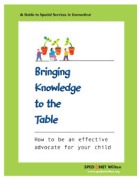Sheldon H. Wagner, Ph.D. and Michael J. Weiss, Ph.D.
Both terms criterion-referenced and norm-referenced were originally coined by Robert Glaser. Unlike a criterion-reference test, a norm-referenced test indicates whether the test-taker did better or worse than other people who took the test.
For example, if the criterion is “Students should be able to correctly add two single-digit numbers,” then reasonable test questions might look like “” or “” A criterion-referenced test would report the student’s performance strictly according to whether the individual student correctly answered these questions. A norm-referenced test would report primarily whether this student correctly answered more questions compared to other students in the group.
Even when testing similar topics, a test which is designed to accurately assess mastery may use different questions than one which is intended to show relative ranking. This is because some questions are better at reflecting actual achievement of students, and some test questions are better at differentiating between the best students and the worst students. (Many questions will do both.) A criterion-referenced test will use questions which were correctly answered by students who know the specific material. A norm-referenced test will use questions which were correctly answered by the “best” students and not correctly answered by the “worst” students (e.g. Cambridge University’s pre-entry ‘S’ paper).
Some tests can provide useful information about both actual achievement and relative ranking. The ACT provides both a ranking, and indication of what level is considered necessary to likely success in college. Some argue that the term “criterion-referenced test” is a misnomer, since it can refer to the interpretation of the score as well as the test itself. In the previous example, the same score on the ACT can be interpreted in a norm-referenced or criterion-referenced manner.
from Wikipedia
2 January 2012

Leave a comment